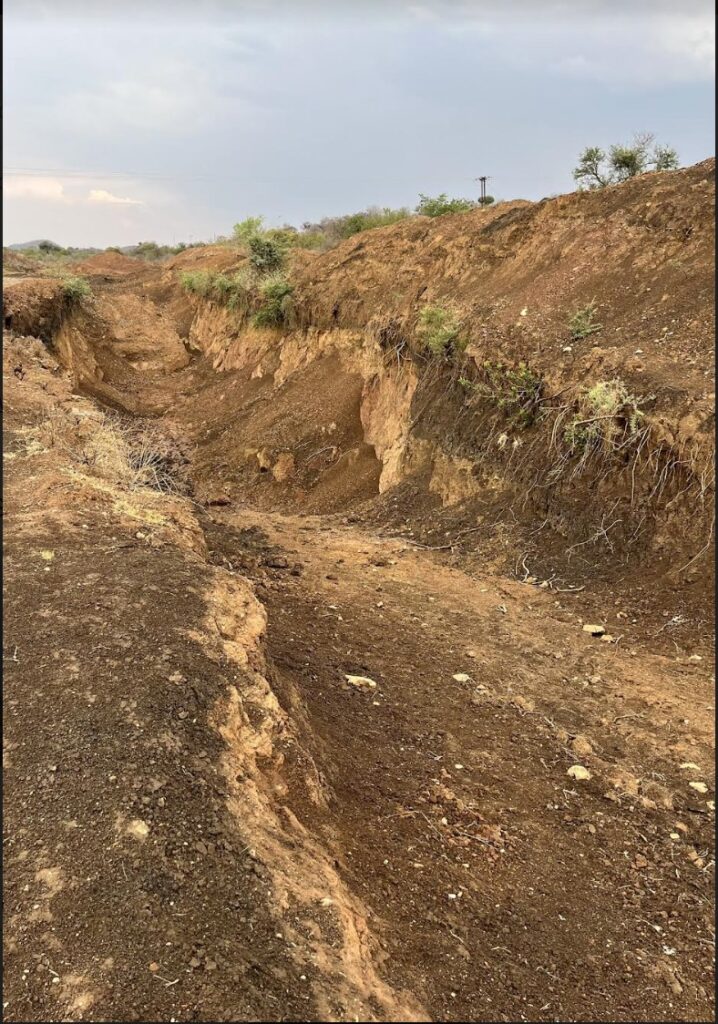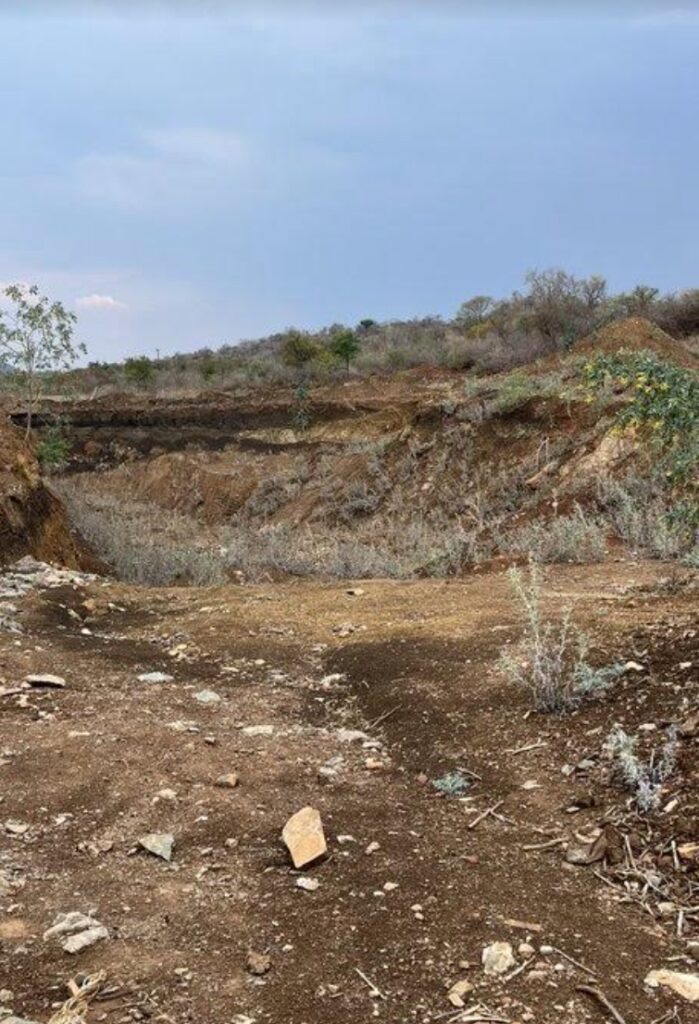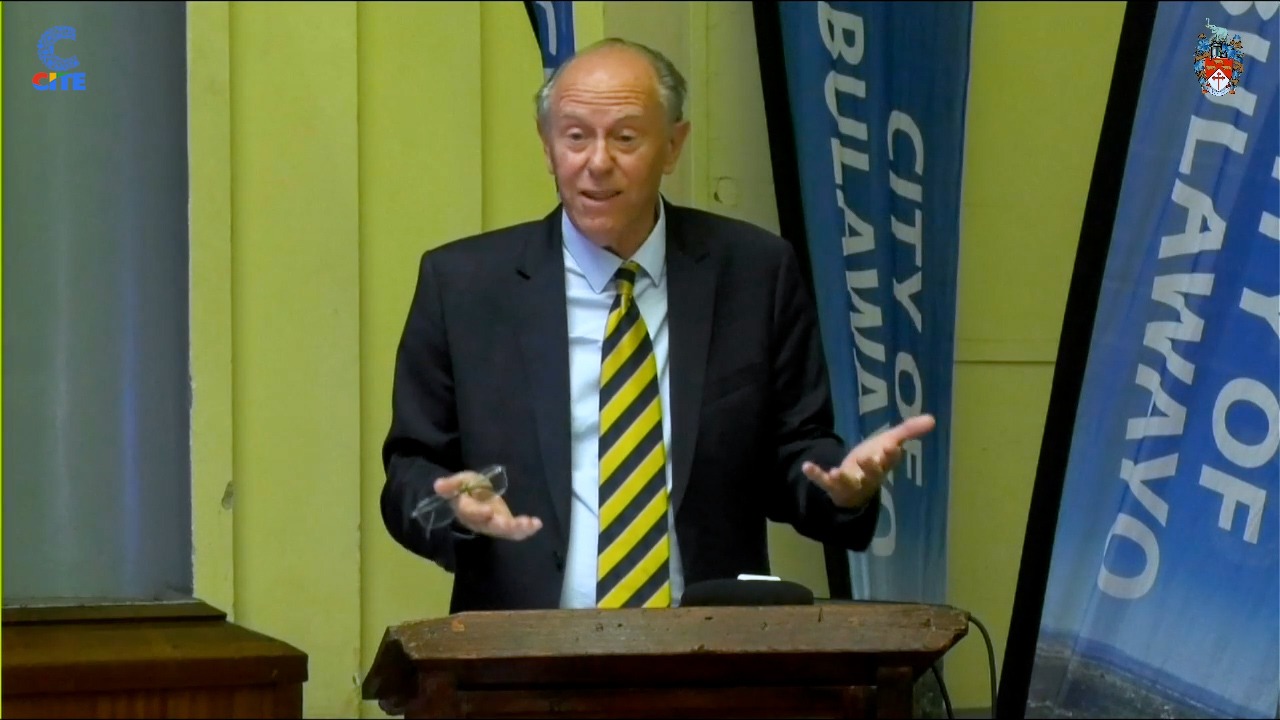Bulawayo Mayor David Coltart has accused the Environmental Management Agency (EMA) of failing to prevent illegal mining activities near the city’s supply dams, which have led to severe land degradation and disrupted water flow into Bulawayo’s reservoirs.
The illegal gold panning in dam catchment areas, particularly around Umzingwane, has exacerbated the city’s water crisis, especially during the dry season.
Despite efforts by the Bulawayo City Council (BCC) to address the issue, political interference and a lack of resources continue to hinder progress. This has prompted growing calls for urgent action to mitigate the environmental damage and for EMA, along with other relevant authorities, to enhance their efforts in protecting the city’s vital water resources.
The illegal activities have left behind large gullies and blocked streams, which are crucial for channelling water into the dams.
“Yesterday (Wednesday) afternoon, I saw firsthand some of what remains of streams devastated by gold miners in the Umzingwane catchment area,” Coltart said, sharing images of the damage on his X account.
“These photographs, taken by me, show the huge gullies dug in valleys, completely cutting off streams. These areas have now been abandoned after the gold was extracted.”


Coltart criticised EMA for failing to rehabilitate the damaged areas, stating that the agency “has done nothing to ensure that the miners responsible rehabilitate these valleys. It will take a cyclone and floods to get any water past these gullies and into our dams.”
The mayor warned that if the illegal mining continues unchecked, it could have catastrophic consequences for the city’s water supply.
“This simply has to stop. This is a national emergency. We need EMA, the police, and, if necessary, the army to stop this destruction of our nation and the devastation of Bulawayo’s catchment areas,” Coltart added.
Residents have also voiced concerns about the impact of illegal mining on the environment and the enforcement of environmental laws.
Following the release of a documentary titled Time Bomb: The Impact of Urban Mining on the City of Bulawayo, produced by Accountability Lab Zimbabwe in collaboration with the Bulawayo Progressive Residents Association (BPRA) and CITE, residents called for stricter measures to safeguard the region’s water resources.
One resident, Mr Dubley, questioned: “Why should we face these problems when there are strong and clear bylaws to stop this nonsense? Cheap politics is destroying our existence.”
He added, “Maybe there is truth in that, but why do residents—the same who sing and dance—fail to act against this uncontrolled environmental problem? We like to talk big but take no action. For example, we often propose complicated solutions to simple emergencies, like installing a quick backup diesel generator at Mtshabezi, but instead, we suggest systems that would take months or years to implement. We prefer those because big contracts often come with extra allowances and kickbacks. Meanwhile, nothing gets resolved to alleviate residents’ suffering.”
Another resident, Stephen Dewa, raised concerns about the broader lack of governance in Zimbabwe, while others highlighted the health risks posed by dust from traffic on unpaved roads in the mining areas.
The Zimbabwe Diamond and Allied Minerals Workers Union (ZDAMWU) has also weighed in, advocating for the formalization of artisanal miners as a solution to the environmental destruction.
ZDAMWU General Secretary Justice Chinhema argued that formalization would enable better regulation and monitoring of illegal mining activities.
“Formalizing artisanal miners would help protect the environment and ensure they operate within legal frameworks, reducing the damage to water catchment areas,” Chinhema said.
He emphasized the need for dialogue between trade unions and the government to effectively address the issue.
Chinhema also highlighted that illegal mining has caused severe damage to rivers and water bodies across the country, citing examples from Mutare and Mashonaland West, where rivers have been polluted or silted due to alluvial mining.
ZDAMWU is currently engaging with the Junior Chamber of Mines and the Zimbabwe Miners Federation to promote the formalisation of the artisanal mining sector, drawing lessons from other African countries like Ghana and Zambia.

